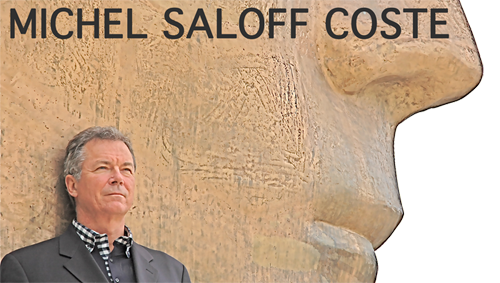Germany
From Wikipedia, the free encyclopedia
Germany has the world's fourth-largest economy by nominal GDP and the fifth-largest by purchasing power parity. As a global leader in several industrial and technological sectors, it is both the world's third-largest exporter and third-largest importer of goods. It is a developed country with a very high standard of living, featuring comprehensivesocial security that includes the world's oldest universal health care system. Known for its rich cultural and political history, Germany has been the home of many influentialphilosophers, artists, musicians, scientists, and inventors. Germany was a founding member of the European Community in 1957, which became the EU in 1993. It is part of theSchengen Area, and has been a member of the eurozone since 1999. Germany is a great power, and a member of the United Nations, NATO, the G8, the G20, the OECD and the Council of Europe.
Germany has the world's fourth-largest economy by nominal GDP and the fifth-largest by purchasing power parity. As a global leader in several industrial and technological sectors, it is both the world's third-largest exporter and third-largest importer of goods. It is a developed country with a very high standard of living, featuring comprehensivesocial security that includes the world's oldest universal health care system. Known for its rich cultural and political history, Germany has been the home of many influentialphilosophers, artists, musicians, scientists, and inventors. Germany was a founding member of the European Community in 1957, which became the EU in 1993. It is part of theSchengen Area, and has been a member of the eurozone since 1999. Germany is a great power, and a member of the United Nations, NATO, the G8, the G20, the OECD and the Council of Europe.
Germany officially the Federal Republic of Germany (German: Bundesrepublik Deutschland, pronounced [ˈbʊndəsʁepuˌbliːk ˈdɔʏtʃlant] ( )),[11] is a federal parliamentary republic in western-central Europe consisting of 16 constituent states, which retain limited sovereignty. Its capital city andlargest city is Berlin. Germany covers an area of 357,021 square kilometres (137,847 sq mi) and has a largely temperate seasonal climate. With 80.6 million inhabitants, it is the most populous member state in the European Union. Germany is a major economic and political power of the European continent and a historic leader in many cultural, theoretical and technical fields.
)),[11] is a federal parliamentary republic in western-central Europe consisting of 16 constituent states, which retain limited sovereignty. Its capital city andlargest city is Berlin. Germany covers an area of 357,021 square kilometres (137,847 sq mi) and has a largely temperate seasonal climate. With 80.6 million inhabitants, it is the most populous member state in the European Union. Germany is a major economic and political power of the European continent and a historic leader in many cultural, theoretical and technical fields.
Various Germanic tribes have occupied what is now northern Germany and southern Scandinavia since classical antiquity. A region named Germania was documented by theRomans before AD 100. During the Migration Period that coincided with the decline of the Roman Empire, the Germanic tribes expanded southward and established kingdoms throughout much of Europe. Beginning in the 10th century, German territories formed a central part of the Holy Roman Empire.[12] During the 16th century, northern German regions became the centre of the Protestant Reformation. Occupied during the Napoleonic Wars, the rise of Pan-Germanism inside the German Confederation resulted in theunification of most of the German states in 1871 into the German Empire, which was dominated by Prussia.
After the German Revolution of 1918–1919 and the subsequent military surrender in World War I, the Empire was replaced by the parliamentary Weimar Republic in 1918 and lost some of its territory in the Treaty of Versailles. Despite its lead in many scientific and cultural fields at this time, Germany experienced significant economic and political instability which intensified during the Great Depression. The establishment of the Third Reich or Nazi Regime in 1933 eventually led to World War II and the Holocaust. After 1945, Germany was divided by Allied occupation, and evolved into two states, East Germany and West Germany. In 1990, the country was reunified.
Autriche
L’Autriche, en forme longue la République d’Autriche, (Österreich et Republik Österreich en allemand), est un État fédéral neutre d’Europe centrale, sans accès à la mer. Elle est entourée, dans le sens des aiguilles d'une montre, par l’Allemagne et la République tchèque au nord, la Slovaquie et la Hongrie à l’est, la Slovénie et l’Italie au sud, et par la Suisseet le Liechtenstein à l’ouest. L'Autriche est membre de l’Union européenne (UE) et de la zone euro respectivement depuis 1995 et le 1er janvier 1999. Sa langue officielle est l'allemand, mais elle reconnaît aussi par la Charte européenne des langues régionales ou minoritaires : le croate, le hongrois et le slovène. Sa capitale et sa plus grande ville estVienne.

Aucun commentaire:
Enregistrer un commentaire